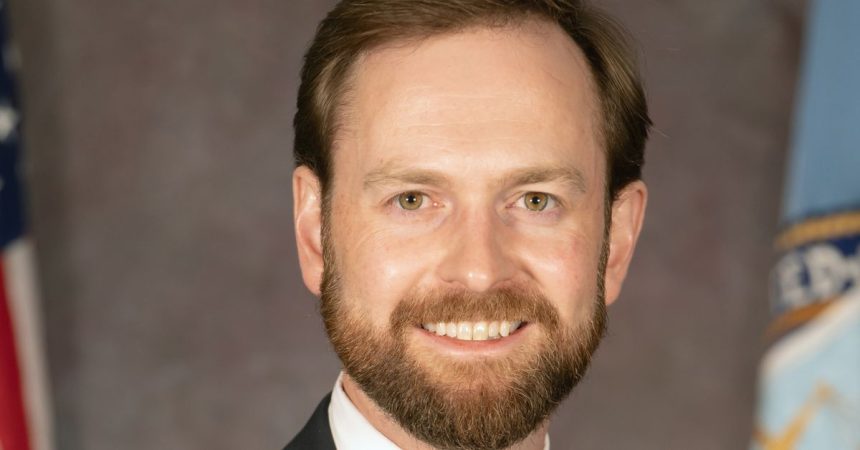President-elect Donald Trump’s selection of Andrew Ferguson as the next chair of the Federal Trade Commission (FTC) signals a significant shift in the agency’s direction, diverging sharply from the current administration’s focus on regulating Big Tech and promoting competition. Ferguson, known for his conservative stance and criticism of what he terms “Big Tech censorship,” is expected to dismantle many of the initiatives implemented under outgoing chair Lina Khan, whose tenure has been marked by aggressive antitrust actions and a broader interpretation of the FTC’s mandate. This transition promises a more business-friendly approach to antitrust enforcement, with a strong emphasis on protecting free speech and opposing what Ferguson calls the “trans agenda.” The appointment reflects Trump’s broader campaign platform, which frequently attacks “wokeness” and alleges bias against conservative voices online.
Ferguson’s stated priorities, outlined in a document obtained by Punchbowl News, explicitly target Khan’s policies, promising to “reverse her anti-business agenda.” This suggests a move away from the aggressive pursuit of antitrust cases against tech giants and a potential reevaluation of the FTC’s authority to regulate online platforms. His pledge to “hold big tech accountable and stop censorship,” however, presents a nuanced position. While opposing Khan’s approach, Ferguson also aims to address concerns about Big Tech’s power, albeit through a different lens. He appears to focus less on competition issues and more on alleged censorship of conservative viewpoints, a claim often echoed by Trump and his supporters. The intention to “protect freedom of speech and fight wokeness” further underscores Ferguson’s conservative ideology and suggests that the FTC’s focus may expand beyond traditional antitrust enforcement into areas of cultural and political debate.
The nomination of Mark Meador, an antitrust lawyer from the private sector, to serve as an FTC commissioner further solidifies the anticipated shift in the agency’s direction. Meador’s background in representing businesses likely aligns with Ferguson’s vision of a less interventionist FTC. With a majority of commissioners likely sharing similar views, the commission’s decisions under Trump’s second term are expected to reflect a significant departure from the current administration’s approach. This change in leadership could lead to a reevaluation of ongoing investigations, a scaling back of enforcement actions, and a potential reinterpretation of existing antitrust laws. The focus may shift from structural reforms aimed at breaking up large tech companies to addressing specific instances of alleged bias or censorship.
Ferguson’s emphasis on reversing Khan’s policies reflects a broader debate about the role of the FTC in the digital age. Khan, appointed by President Biden, advocated for a more expansive view of antitrust law, arguing that traditional metrics failed to capture the full scope of Big Tech’s market power. She initiated several high-profile antitrust lawsuits against companies like Facebook and Amazon, and sought to strengthen the FTC’s ability to regulate emerging technologies. Ferguson’s appointment signifies a rejection of this expansive approach, suggesting a return to a more traditional interpretation of antitrust law focused on consumer welfare and market competition, rather than broader societal concerns.
The incoming administration’s stated focus on “fighting wokeness” introduces a new and potentially controversial element to the FTC’s mandate. This broad and ill-defined term often encompasses issues related to diversity, equity, and inclusion, suggesting that the FTC might scrutinize companies’ policies and practices in these areas. How this focus will translate into concrete actions remains unclear, but it raises concerns about potential overreach and the politicization of the agency. Critics argue that such a focus could chill free speech and stifle corporate efforts to promote inclusivity. It also raises questions about the FTC’s expertise and authority to address issues that fall outside its traditional purview.
Ultimately, the appointment of Andrew Ferguson as FTC chair signifies a fundamental shift in the agency’s priorities and approach. Under his leadership, the FTC is expected to move away from its current focus on regulating Big Tech and promoting competition towards a more business-friendly environment with a strong emphasis on free speech concerns, particularly those related to alleged censorship of conservative viewpoints. The “fight against wokeness” adds another layer of complexity and potential controversy, suggesting a broader cultural battle playing out within the realm of antitrust enforcement. This change in direction reflects a broader ideological divide on the role of government regulation in the digital economy and the balance between promoting competition and protecting free speech. The long-term implications of this shift remain to be seen, but it promises a significant departure from the FTC’s trajectory under the Biden administration.



